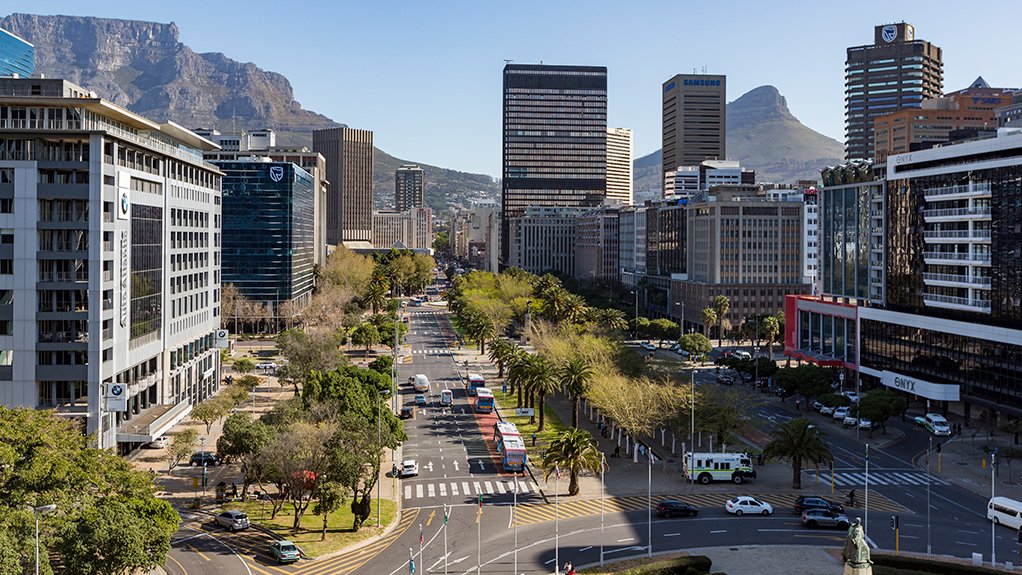Cape Town readies battery storage, ‘dispatchable IPP’ procurement programmes
The City of Cape Town, which is in the process of procuring up to 200 MW of renewable energy from independent power producers (IPPs), expects to initiate a utility-scale battery energy storage system (BESS) programme in 2023.
It is also working on the design of a so-called ‘dispatchable IPP programme’ that could deliver first power in 2026 as part of a broader strategy to improve security of supply and mitigate against intensifying load-shedding.
Generation development manager Shane Prins told delegates during a webinar on August 12 that he expected BESS to emerge as a major component of the city’s unfolding energy resilience strategy.
“Multiple use cases are seen as feasible within the city to support the BESS business case, with the main focus currently on network investment deferral, back-up supply to critical facilities and, at a later stage, arbitrage,” Prins said during the event, co-hosted by the Association of Municipal Electricity Utilities and the South African Institute of Electrical Engineers.
Detailed location analysis had been completed and the city would now focus on developing site-specific BESS business cases.
In parallel, the City of Cape Town had completed the initial design of a ‘dispatchable IPP programme’, which would be “technology agnostic” and implemented through a competitive tender process.
Prins said the solutions would have to be both dispatchable and able to generate over extended periods, which made the procurement complex and potentially expensive.
“The impact on the tariff will, thus, be a key consideration.”
Should it proceed, the dispatchable programme was likely to be larger than the current embedded renewables IPP procurement and, depending on the final technology selected, could require enabling infrastructure.
Nevertheless, the city viewed the programme as having “significant catalytic potential for economic growth in the city and the province” and was, thus, aiming to secure first power under the scheme in 2026.
Prins reported that the city had been encouraged by the response to the embedded IPP tender launched in February and that first power is still expected by the end of 2025.
However, he reported that recent increases in renewables component prices posed a risk to bidders meeting the price cap set.
Cape Town was also moving ahead with its own-generation projects, including a 10 MW solar photovoltaic (PV) facility to be sited on vacant land in Atlantis and connected directly into the city’s network.
Project execution is expected to begin in the first quarter of 2023 and the initiative was being treated as a “lighthouse project”, or a possible template for similar, but bigger, projects in future.
One such project could be the Paardevlei solar PV development, in Somerset West, where land parcels have been identified for a possible 50 MW to 60 MW facility.
In addition, Cape Town is assessing further rooftop and small, ground-mounted PV projects and is piloting a floating solar facility at the Kraaifontein wastewater treatment works, which could reduce evaporation and deliver a higher yield as a result of its proximity to the water’s cooling effect.
EKURHULENI SEES WHEELING AS REVENUE OPPORTUNITY
Gauteng metropolitan council Ekurhuleni, meanwhile, reaffirmed that it had a target of ensuring that 30% of its electricity was derived from renewable or clean sources by 2030, not only to support its decarbonisation strategy, but to improve security of supply and to reduce costs.
Chief engineer Hendrik Raedani said the business case for pursuing energy transition initiatives had improved in line with falling renewables costs and was being amplified by the growth in demand for green energy from certain businesses operating in Ekurhuleni, including data centres.
He reported that the city had already appointed 47 IPPs to procure 683 MW of renewable energy, while registered embedded generators in the region had a combined capacity of 400 MW.
Ekurhuleni expects savings of R13.9-billion as a result of procuring directly from IPPs for a period of 20 years at rates below that it would otherwise have paid to Eskom, which remained the city’s main source of supply.
The city is also aiming to procure excess power from small-scale embedded generators at lower rates and viewed wheeling as a new revenue opportunity as an increasing number of IPPs seek to access its network.
“We intend leveraging our greatest asset, the grid,” Raedani told webinar participants, who were also exposed to the energy transition plans of the Steve Tshwete local municipality, in Mpumalanga, and the Garden Route district municipality, which encompasses seven Western Cape municipalities.
Steve Tshwete local municipality’s Michael Nkosi reported that the council had adopted an energy-mix strategy that would seek to reduce its dependence, over time, on Eskom coal stations and coal mining.
Besides supporting the development of renewables projects in the area, the council was a keen supporter of the creation of a special economic zone, which would focus on the manufacture of key components for South Africa’s wind and solar industries.
Nkosi stressed the urgency of creating new economic opportunities in light of the fact that several nearby Eskom power stations were scheduled to be decommissioned in the near future, including the Komati power station, which would shut this year.
Garden Route district municipality’s Passmore Dongi, meanwhile, reported that it was exploring the option of developing a “publicly-owned IPP entity” that will generate and deliver bulk electricity to the seven municipalities in the district, including Bitou, Knysna, George, Mossel Bay, Hessequa, Kannaland and Oudtshoorn.
“The objective is to make sure that the region is energy secure and to ensure that the district, which is well-known for tourism, is cleaner and more climate resilient,” Dongi concluded.
Comments
Press Office
Announcements
What's On
Subscribe to improve your user experience...
Option 1 (equivalent of R125 a month):
Receive a weekly copy of Creamer Media's Engineering News & Mining Weekly magazine
(print copy for those in South Africa and e-magazine for those outside of South Africa)
Receive daily email newsletters
Access to full search results
Access archive of magazine back copies
Access to Projects in Progress
Access to ONE Research Report of your choice in PDF format
Option 2 (equivalent of R375 a month):
All benefits from Option 1
PLUS
Access to Creamer Media's Research Channel Africa for ALL Research Reports, in PDF format, on various industrial and mining sectors
including Electricity; Water; Energy Transition; Hydrogen; Roads, Rail and Ports; Coal; Gold; Platinum; Battery Metals; etc.
Already a subscriber?
Forgotten your password?
Receive weekly copy of Creamer Media's Engineering News & Mining Weekly magazine (print copy for those in South Africa and e-magazine for those outside of South Africa)
➕
Recieve daily email newsletters
➕
Access to full search results
➕
Access archive of magazine back copies
➕
Access to Projects in Progress
➕
Access to ONE Research Report of your choice in PDF format
RESEARCH CHANNEL AFRICA
R4500 (equivalent of R375 a month)
SUBSCRIBEAll benefits from Option 1
➕
Access to Creamer Media's Research Channel Africa for ALL Research Reports on various industrial and mining sectors, in PDF format, including on:
Electricity
➕
Water
➕
Energy Transition
➕
Hydrogen
➕
Roads, Rail and Ports
➕
Coal
➕
Gold
➕
Platinum
➕
Battery Metals
➕
etc.
Receive all benefits from Option 1 or Option 2 delivered to numerous people at your company
➕
Multiple User names and Passwords for simultaneous log-ins
➕
Intranet integration access to all in your organisation





















